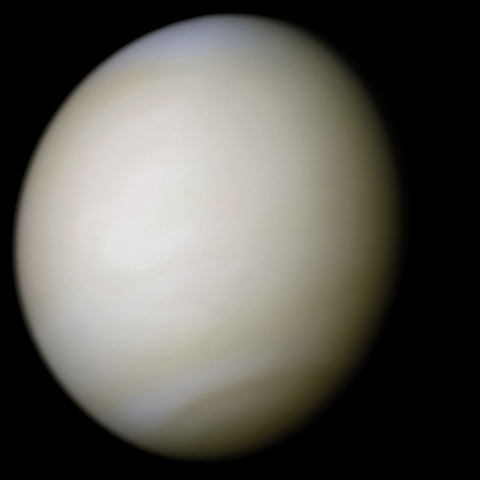There might be life on Venus.
On Sept. 14, Massachusetts Institute of Technology scientists announced there are potential signs of life on Venus. Using two different telescopes at two different times, they found traces of phosphine gas in Venus’ atmosphere.
According to the New York Times, the phosphine found in the Earth’s atmosphere is from microbes, normally correlated as foul, as it is found in feces and was used for chemical warfare in World War I. It is also found in swamps, sewage plants, the bottoms of lakes and intestines of animals.
The colorless gas could have different explanations, but scientists claim that a valid reason is the discovery of life.
Clara Sousa-Silva at MIT explained to NPR the qualities of phosphine. She told NPR that though phosphine is dangerous, usually considered to be more violent than life-giving, the gas still has the potential to be the key to life on Venus.
“Because phosphine interferes with oxygen metabolism, it’s toxic for the majority of life on Earth.” Still, said Sousa-Silva. “There’s plenty of life, mostly in the shadows, that doesn’t particularly enjoy oxygen and doesn’t rely on oxygen. And these anaerobic ecosystems on Earth happily produce phosphine in reasonably large quantities.”
Venus is not normally the first thought about in the discussion of life on other planets. According to NASA, “there are a range of pressures at Venus’ surface from 17 to 20 times that on Earth’s surface and a maximum temperature of 520 degrees Fahrenheit.”
Due to this, life could not be found on the surface of Venus. “High in the clouds, however, the pressures and temperatures and acidity levels would be less intense — though still vile,” an NPR article stated.
According to Janusz Petkowski of MIT, any life found in the clouds of Venus would have to be able to survive in highly concentrated sulfuric acid that’s around a billion times worse than any acidic environment on Earth. Despite this, Petkowski stated life in the clouds is possible.
NASA has usually ignored Venus, declining to fund many missions in the past few decades. It announced in February that it would look into two missions, DAVINCI+ and VERITAS, to discover more about Venus.
“For the last two decades, we keep making new discoveries that collectively imply a significant increase of the likelihood to find life elsewhere,” said Thomas Zurbuchen, the head of NASA’s science directorate, in an interview with the New York Times. “Many scientists would not have guessed that Venus would be a significant part of this discussion. But, just like an increasing number of planetary bodies, Venus is proving to be an exciting place of discovery.”




